Text
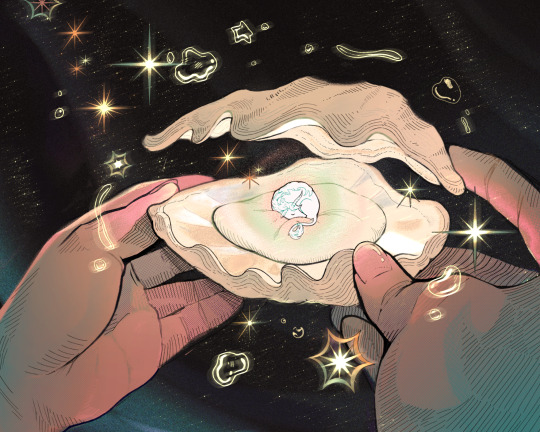
How To Find A Sea Unicorn (prints)
90K notes
·
View notes
Text
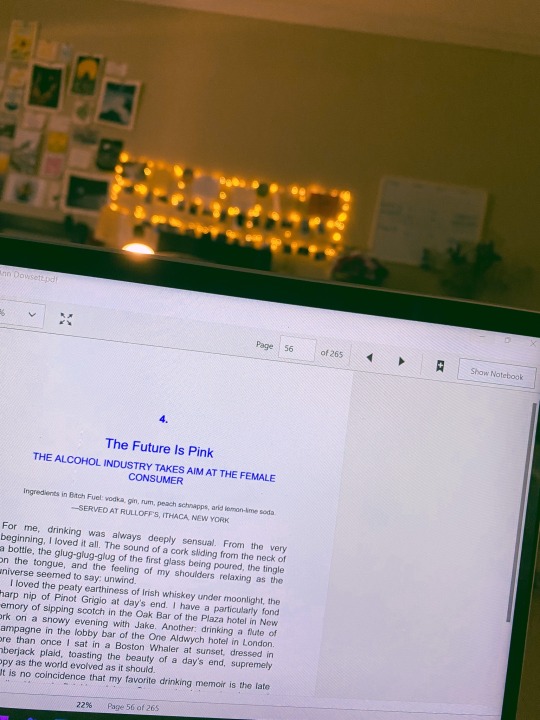
2/19/22
Hearing from your mentee that a professor proudly spoke about you in class is one of the best feelings in the world 🥺
#college student#studyblr#college#science#academia#student#notes#biochem#cheeringyouon#pre grad school#prospective grad#senior#collegeblr#books#reading#proud#professor#mentor#mentorship
38 notes
·
View notes
Text
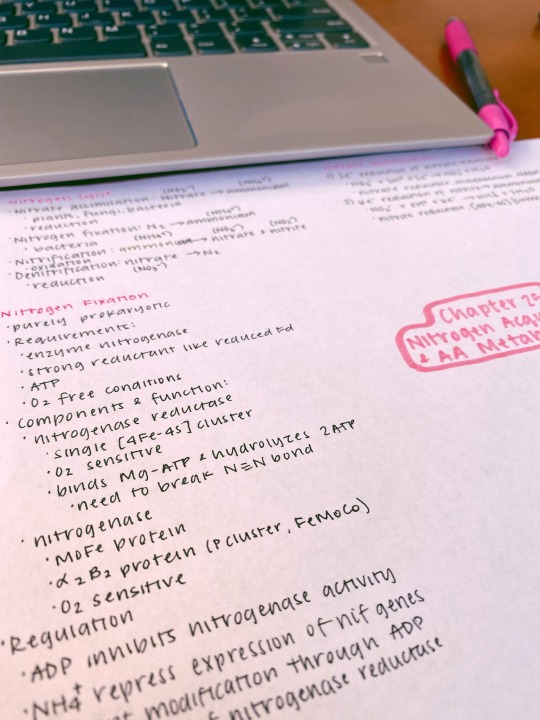
2/15/22
Took my first biochem 2 exam and it went so much better than expected oml. What a relief 😅
#college student#studyblr#college#science#student#notes#biochem#cheeringyouon#test#exam#studying#review#university#academia#stemblr#stem#productivity
31 notes
·
View notes
Text

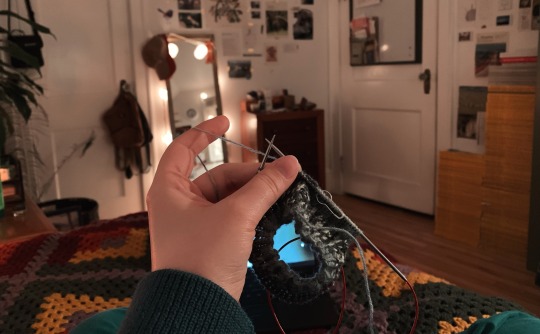
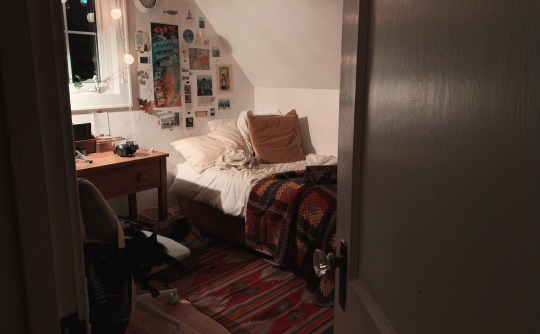
february productivity challenge, day three: what’s your nighttime routine like?
these days, my night routine usually goes like:
16:00-18:30ish finish work for the evening
18:30-19:00 dinner time with the family
19:00-21:00 knitting time
21:00ish shower
21:30-22:30 more knitting?? maybe read or journal if i’m in the mood and then 💤💤
723 notes
·
View notes
Text




the bookshops that define Amsterdam
2K notes
·
View notes
Text

2.3.22 | some of the books i read in january! if you want to hear more about my ratings, check out my goodreads or this post, my january wrap up!
489 notes
·
View notes
Text


2/2/22
Struggling to find the motivation to do things 😅 really despising my biochem 2 class bc the prof isn’t great and I’m having a hard time wanting to learn about photosynthesis. Amino acid stuff is cool, but like I’m okay with just knowing they exist and function like they’re supposed to and keep me alive. Don’t really want to have to memorize all the structural components that go into how amino acids are formed. Does that make me a bad biochem major? Idk lol but I’ve made it this far 🤷🏻♀️
#college student#studyblr#college#science#student#pre grad school#school#cheeringyouon#study#biochem#notes#planner#bullet journal#plants#biochemistry#lecture
10 notes
·
View notes
Text
Hello Again!
Hello hello! It's been a while, hasn't it? Life has been a rollercoaster ride since the last time I posted, and I just lost track of everything not school or grad school applications related. I had wanted to keep this up over the semester, but things just got a little out of hand. But either way, here are a few updates about what’s been going on:
Im now in my last semester of undergrad now!! Woohoo but also 😰😰
I applied to PhD programs in the fall and currently in the process of interviewing and playing the waiting game. More on that in another post later in the semester once I’m more certain about things and less of an emotional mess lol.
Hopefully I’ll be more consistent with this again! With everything happening last semester, I ended up letting go of all of my side hobbies which included this tumblr :/ but, my course load is less and I do enjoy making posts and seeing y’all’s content, so I hope to be more active!
Thank you everyone who has continued to follow and engage with my stuff! I hope to make more of the study guide/how to posts about different topics. If there’s anything in particular you want to see, send me a message/ask!!
So yeah! That’s all I have for y’all now :) hope everyone is doing well and staying safe! Here’s to a strong last semester 🥂
#studyblr#cheeringyouon#txt#update#I’m back!#college student#science#school#college#student#pre grad school#grad school apps#prospective grad#undergrad#senior
4 notes
·
View notes
Text
Welcome to the community!!! Excited to have you here :)

hi, everyone!
I've been thinking about making a studyblr for a while now and I don't want to lurk from the shadows anymore :)
I'm Jay, a third semester student, linguistics and English literature, and - big surprise - languages are my greatest passion. I'm a native German speaker and learnt French in France where I was raised. Also, I've been trying to duolingo my way through Swedish and Russian
Some facts about me:
I love cacti, so far I've bought nine of them (rescued them from Ikea)
Beet root is my mortal enemy
I dance hiphop and love going for a run from time to time
Bunnies are my favourite animals
This account was made because I feel like I need the peacefulness of this community.
I'm afraid my general aesthetic isn't all that....well, aesthetic but I'll do my best!
Blogs that I like!
@marie-curie @catestudyblr @cheeringyouon @afrofuturiststudent @kei-i @my-study-world
And my special favourite whom I've been following from my other accounts for a long time: @tiredbiostudent
Thank you for inspiring me!
81 notes
·
View notes
Text

9-8-21
Some days you just need a little forceful visualization, and spicy ramen at 12:30 am.
27 notes
·
View notes
Text

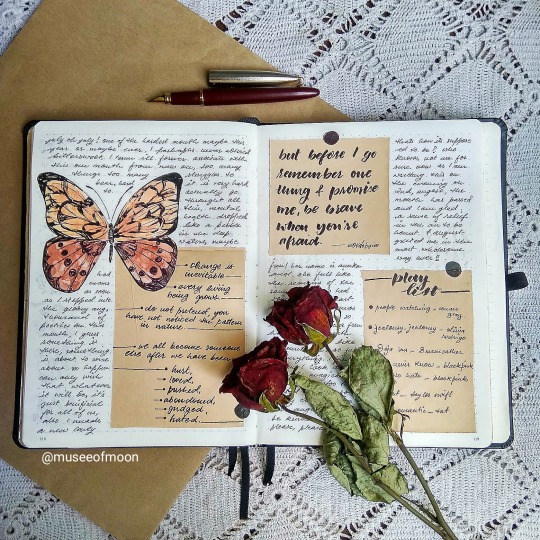
𝑾𝒆𝒅𝒏𝒆𝒔𝒅𝒂𝒚,11 𝒂𝒖𝒈•
I'm back from hiatus!! (maybe🗿) exams are finally over but not the struggles aha. had a really bad burn out that ended up in fever, I hope things get better for all of us. also thank you for 2000+ followers!! love y'all <3
🎧: 𝑭𝒆𝒆𝒍 𝑳𝒊𝒌𝒆_ 𝑾𝑶𝑶𝑫𝒁
610 notes
·
View notes
Photo

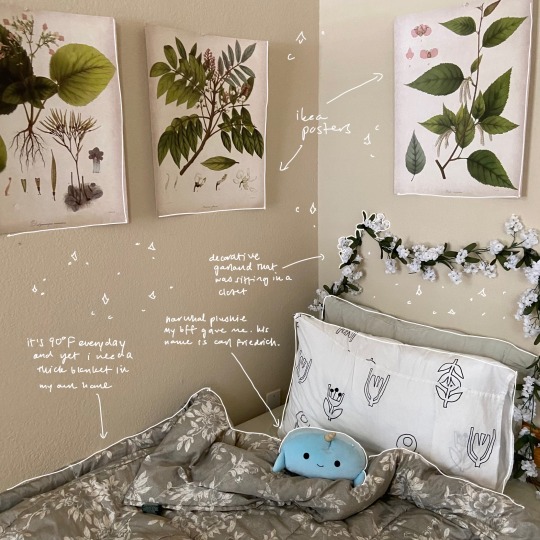
8.1.21 | WHY IS IT AUGUST???? i feel like july was so slow but when it changed months i was like ??????? anyway i got a bunch of new stuff for my apartment shipped from home yesterday and after rearranging everything i think it looks quite nice! what do y’all think?
1K notes
·
View notes
Text

another view of my desk at 6 am :-)
3K notes
·
View notes
Note
yooo how do u email a prof for a recommendation letter?
Hi Professor!
I am in the process of applying to ____ and they require letters of rec. I sincerely enjoyed your classes, and felt that they gave me a particularly good chance to display my strengths, such as ____ [class participation, writing, etc.] and would love for you to write me a letter, if you’d be willing. The due date is ____, and I can send you further instructions for submission later if you accept.
Attached to this email is ____, the piece of work I did in your class which best showcases my abilities, as well as my current CV [or resume]. If you agree to write me a letter, soon I will also send you drafts of my ____ [statement of purpose, personal statement, application essays, other relevant material] for my application to aid in your writing. I am also happy to meet in person to discuss this with you.
I want to stress that this application is quite competitive, so if you feel you will not be able to write me a strong letter then I completely understand - but please let me know. Thank you so much for your time!
Sincerely, ____
—
a few notes:
- you should have all your relevant materials (app essays, etc.) sent to them *at least* a month in advance to give them ample time to write the letter
- thus, your initial email asking them if they’d be willing to write a letter for you should be sent *over* a month in advance. professors are busy
- if you are applying for a really prestigious position/scholarship/fellowship, or grad school, it’s best to have at least a majority of your letter writers be professors (rather than adjuncts or post docs). ideally you’d want them to be full/tenured professors. in lots of cases, especially academic ones, *who* writes your letter matters - not just *what’s in* your letter
- the reason you send them the piece of work you did in their class that you are most proud of is to remind them of your abilities as a student and the quality of the work you produced for them. they have lots of students. sometimes they need a bit of help jogging their memory of exactly what you did in their class.
- the reason you send them your other application materials (personal statement, statement of purpose, CV) is so that they have information to draw from when writing your letter. they know what you’re passionate about, what you hope to do in the future, other experience you have, and can use this information when writing your letter
- on a similar note, this is also why you’d want to list the strengths you displayed in their class
- basically, you want to give them as much information as you can about your strengths, goals, and intentions - give them prompts they can use to write your letter
- the bit at the end about asking for a “strong letter” is important because some professors can only write you mediocre letters (e.g. “this student was always on time to class and gave their undivided attention during lecture” - what does this tell admission committees? well, it tells them that the professor has nothing positive to say about your *academic* abilities and so they’re resorting to other strengths. it’s a polite way of saying “this student was okay, but not spectacular in any notable way”. big red flag for admissions committees.) if all you’re going to get is a mediocre letter, you might as well not get a letter at all
- if the professor you ask accepts, then be sure to send them polite reminders as the date approaches. (i usually send a reminder at the 1-month-till-due-date mark when i send the other application materials, and then again at the 2 week and 1 week marks, and, if necessary, every day after the final 3 days leading up to the due date
—
i know this was a lot, but i remember being in your shoes and being completely lost when it came to applying for stuff so i know how daunting it can be. i figured i’d just throw all this information at you to be of as much help as possible.
for reference, i’ve applied to graduate programs, fellowships, and scholarships. i have been accepted into several of the top 10 graduate programs in my area, as well as received multiple scholarships and a fellowship, and received honorable mentions for some of the most competitive fellowships in the US. i have also worked with the admissions committee at my graduate program to organize multiple informational events for those interested in applying to graduate school and, in the process, have learned a lot about what makes a strong application.
so while you should absolutely take my advice with a grain of salt (different circumstances call for different standards), i do have quite a bit of experience with applications and what makes a strong letter of rec.
i hope this helped! best of luck with whatever you’re applying for :)
9K notes
·
View notes
Text

How I Take Notes!
Hello friends, hope everyone is doing well and staying safe! With the new semester starting in a little under two months, I thought it would be a good time to make a post on notetaking. Notetaking is one of my absolute favorite ways to learn material that I’m being taught in class. I am a very visual and kinesthetic learner, so the action of writing something down, and being able to look back at something is extremely beneficial to me. I have always despised reading through textbook chapters multiple times, so taking notes in a way that I like makes the learning process more enjoyable to me as well. Although my note taking process may seem intensive and unnecessary to some, this is how I have managed to get by so far.
1. Finding a notetaking style and tool:
There are several different notetaking styles that can be utilized. The two most common ones are either the outline method, or the Cornell notetaking method. I have always followed a version of the outline method- the Cornell method never caught my attention. There are advantages and disadvantages to both styles, but here is a general overview of what each looks like.
Apart from choosing the way you want to take notes, it’s helpful to choose what you want to use to take your notes. I prefer taking notes in notebooks, that I organize by class. I did try taking digital notes once the pandemic hit, but I realized that I despised having to look at a screen in order to study after spending hours watching lecture recordings. I will be going back to taking more detailed notes on paper, but will continue to use digital notes during lectures.

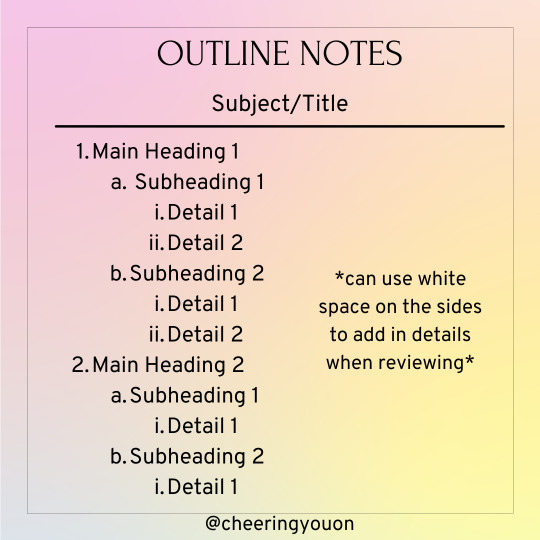
2. Picking a color scheme:
This is something that is based on personal taste, there is absolutely no need to pick a color scheme. Like I said, I am a visual learner, so using a few colors helps me divide the content in my notes and points out key information. I also like to use colors to differentiate between main and subheadings as it helps me keep my notes organized. I used to use a different pen color for literally every line (see image on the left below), but now I realize that it looks like rainbow throw up- I have now become more streamlined in my color choosing process LOL


3. Taking the notes:
In high school, I used to sit in class with my all my pens in my giant pencil bag and make my colorful notes during the lectures. This was doable for me since high school teachers tend to give their lectures at a slower pace so that it is easy for everyone in the room to grasp. However, once I got to university, that became extremely difficult since professors tend to speed through the material in order to cover all the topics.
With that transition, I realized that there were two ways I could go about this:
1. Take time before class to take lecture notes and then add in any details on the side during the lecture. This does help in being more prepared for lectures, but it is time consuming, and requires a tad more motivation to get started. This was especially useful for classes like OCHEM, where the professor would give tips and tricks to understand the numerous reaction mechanisms. For me, having the notes prewritten made it easier to follow along, and understand what he was describing.
2. Take “messy” notes in class and then take time after class to redo my notes in a way that I found useful. If a class is very slide-based, I also will just type out any additional details onto the slides, and then review them after class. This is usually what I do- take messy or scribbled notes on my laptop during class, and then take time after class to take more detailed notes.
For certain classes, the professor may not cover all the details necessary to be successful in the class (these to me are the ABSOLUTE worst kind of prof). In this case, I maintain a separate notebook where I would take notes from the textbook. This would help me fill in any missing gaps from class, and also give me another chance to look through the material.
After taking my notes, I go back through them, and highlight key words/vocabulary to make it easier to see when I review them in time for exams.
4. Using the notes:
Taking the notes, sometimes doing it twice, is extremely time consuming, so it’s important that you put them to good use. I generally only use my notes when I am trying to study for my exams. I find that with the amount of detail I put into my notes, I don’t have to reference textbooks or slides very often.
I also use my notes to make what I call “One-page reviews.” This was a technique that my high school bio teacher had us use in order to prep for or class exams. The idea behind this is to organize the topics and concepts you learned in a unit on a single sheet of paper. This helps keep every key information on one sheet, and helps you connect the dots between concepts as well.
By doing this before every single unit test/class test, it will also make it significantly easier when it comes around to studying for finals- you already have detailed review sheets prepared!

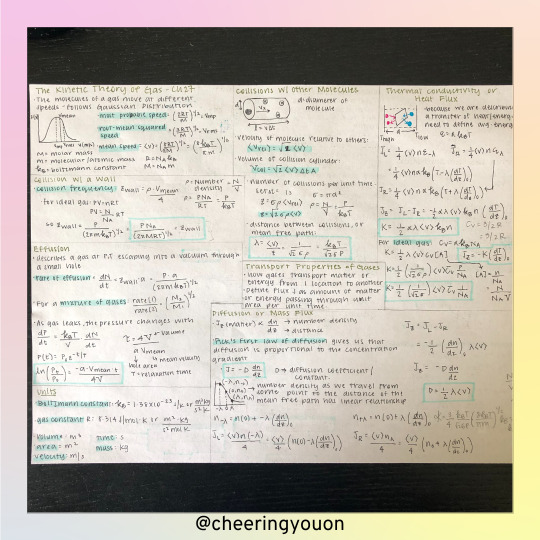
So yeah! This is a rough overview of my notetaking process. I may have skipped over some details, since a lot of this is up to personal preference. No single method works for everyone- it's all a matter of trial and error to see what works best for you. If you have any questions or want me to clarify anything at all, feel free to reach out! I hope this helps 😊
~C
#notetaking#advice#college#highschool#notes#infographic#cheeringyouon#collegeblr#studyblr#college advice#highschool advice#studying#study tips#study techniques#cornell notes#outline notes#notetaking process#college life#study setup#text post#studynotes#student#university#college student#advice post#academia#digital notes#written notes#study blog
307 notes
·
View notes
Note
Julia! I'm scared! I'm a freshman in college and I just applied to a few laboratories within my school and I'm more nervous now than when I applied to college. I've never done research before and, while I don't expect much, I'm scared that /if/ I get into a lab, I won't like it or that I'll be in over my head. Can you talk about your research experience(undergraduate or otherwise) and the best ways to make the most of it?
Hey there!
Firstly, I’m super excited and proud of you for inquiring about research experience in a lab. And I’m so so so happy you’re starting your freshman year. I know you may feel super scared, but as someone who’s mentored undergrads for almost 6 years now let me tell you that I love! freshmen! You have unique strengths such as a budding passion, curiosity to learn, and most importantly to a busy researcher in a busy lab, the potential to stick around for 4+ full years, bringing in productivity and stability. Totally win win for everyone around!
And it’s totally okay if you don’t know anything about lab work, or the topic of the research, or even how to hold a pipette. Those are easy things we can teach you and that you will learn bit by bit. But what’s really rare is to find someone who’s passionate about research, and learning, and never giving up. And the fact that you’re applying to these research positions in your freshman year shows just that! So honestly if your application landed in my email i’d snap you up in a heartbeat.
Oh, and when you start in a lab they’re not going to just throw you to the wolves and say “ok here’s a research question go answer it”. You’ll team up with a mentor (a research tech or grad student) and work very closely with them. You will be guided every step of the way until you slowly become proficient in certain techniques, then protocols, then eventually, when you feel comfortable enough (and if you have the time for one), your own independent mini project.
And if you find out you don’t like research, that’s okay! There are many things that I’ve done in the past that i thought was for me (like pre-med and pre-pharm for example), but it ended up not fitting right. And that was honestly a fantastic realization. otherwise i may be stuck working a job i hate, right? so don’t be afraid to want to make the changes that feel right to you. if you still love research, but find that the personality of the lab you’re in isn’t feeling right, it’s okay to move out. you can ask the professor if they have any recommendations for other labs that would fit your personality, and i’m sure they’ll be happy to suggest some. every lab has its own culture, so it may take you a while to find one that fits you! like when i was rotating through labs during the beginning of grad school, 2 of the 3 labs i went through just didn’t feel “right”. and that was totally ok.
Anyway, I totally realize this wasn’t at all what you were asking, but I really wanted to let you know that what you’re doing is amazing
My own research experience:
Undergrad:
I was kind of a “late-bloomer” when it came to laboratory research; I really wasn’t sure what trajectory I wanted to go, so I only considered scientific research my senior year of college. Thus I only had one semester’s worth of research experience in my favorite professor’s lab studying the pathogenesis of Mycobacterium tuberculosis, and alternative antibacterial therapeutics. I worked closely with the lab tech and did a bunch of easy genetic work (like cloning, PCR, DNA blots, the sorts). I definitely don’t think I actually contributed a whole bunch; I was only there 10-12 hours/week so it was mainly for me to get some experience. Working there also got me interested in antibiotic resistance, and whether alternative plant-derived antibacterial treatments were of any use, so I did some research and actually wrote my undergraduate Honors College thesis on the topic. My only regret? Not starting the research earlier. But, as I said, I didn’t really have a clear career path for a lot of college so :\
Post-undergrad:
After graduating, I had the most fortunate lucky good graces to land a research technician job in a lab at my alma mater. The PI had just moved from Harvard, and was looking for someone to get her situated (and then manage the lab). Why the heck she saw my one semester of research experience and thought ah-ha! is beyond me, but I think she made a good decision. I absolutely excelled at managing the lab while still getting my research done (probably because the dynamic of the lab was right up my personality alley; everyone in the lab became good friends). I lead the optimization of two immunoassays for the detection and validation of diagnostic and prognostic biomarkers of cancers and infectious diseases. While there, I also took some grad level courses and thought hey, this ain’t so bad. So three years after working there, I went off to grad school. My experience in this lab gave me 3 papers, a whole bunch of connections, my chance at grad school, and my boyfriend (lol). (And from what I hear now, the lab organization has never been as great as when I was there. Hehheh)
As for tips on how to get the most out of your undergraduate research experience:
Ask questions! Always always ask questions. You won’t be annoying anyone. In fact, if you don’t ask questions, and pretend you know something, but then we find out you actually have no idea what’s going on.. then that’s going to get one someone’s nerves. Ask questions, and if someone doesn’t know the answer, turn to other resources like google. And you can also ask questions outside of the research too; ask your mentor about advice for a science or health career (ex. grad school, med school, etc). Take advantage of our experience and what we can do for you.
Jot down notes. When someone’s showing you a protocol for the first time, have a notebook ready to take notes. It’s fine if you have questions later and need us to explain something again, but if it was something that could’ve easily been written down earlier, then it’s just a waste of time (for you and your mentor).
That being said, have a designated notebook to take notes in. Not your official lab notebook–that belongs to the lab and you can’t take home; but have something for lab meeting notes, cheatsheets for abbreviations, sample formula calculations, etc. I definitely used my notebook from undergrad research at my post-college research tech job.
Check out where everything is. A great way to do this is to volunteer to catalog reagents or supplies (it’s a tedious task, but it needs to be done every few years for audits. also if you volunteer to do this, you’re going to earn like 100000x brownie points from the entire lab). If your lab has shared folders for protocols, data, etc, take some time to poke around to familiarize yourself.
Read about the research. Find out what the major knowledge gap in the field is (or what the current “hot topic” is), and then try to read a few of the lab’s papers. It’s ok if you don’t understand everything in them at first; just keep coming back and you’ll be amazed at how much you’ll learn in the first few months! Reputable internet sources are also great ways to get started (I like YouTube videos of research techniques/concepts).
Engage in lab activities. We want to be friends with you, or at least form that networking connection. So come to our events, sit down with us at lunch. Research is very much a team-oriented job, so let’s get to know each other. At the very least, try to attend all the lab meetings, journal clubs, and any seminars that a lab member is presenting at (they’ll be very informative, and it’s always nice to show your support).
Find as many ways to get your name and research out to the world. This includes contributing to manuscripts and presenting your work in lab meetings, poster sessions, maybe even conferences that accept undergrads (your mentor will have more info). I’ll have to say probably a third of research is about presenting our data, so scientific writing and public speaking are necessary skills to become proficient at. And if you can have a paper or conference poster abstract published that has your name in it -> big bonus points on your CV!
Meet with the PI (principal investigator aka the professor who owns/runs the lab) regularly. To discuss data, your progress, ideas, any forms they need to sign, such and such. They’ll definitely want to know what you’re up to, whether you’re enjoying your time, and if they can point your project in the right direction, etc. You’ll want to establish a good relationship with them as they’ll be your contact for years for things like letters of rec, career openings (they may know someone who knows someone), or just advice.
It’s ok to make mistakes. Everyone has broken something in lab, everyone has spilled a reagent, everyone has messed up a 5-day experiment at the very last step. It’s good to try your best to be diligent of course, but making a mistake is the best way to learn sometimes. I let my undergrads make mistakes all the time (as long as they’re not endangering themselves or others or messing with something super expensive). And I tell them it’s ok, we all do it, and then they never make that same mistake again. So if you mess something up, don’t beat yourself over it. Apologize, offer to do what’s necessary to fix it, and then learn from it.
Plan your class schedule so you have at least a 2 hour block every day (or every other day at the minimum) for lab work. Many protocols days hours to complete, and in a continuous daily manner, so even though your mentor won’t expect you to be there a full 8 hours a day (they know you’re a student first, after all), it’ll be beneficial for all parties for you to have chunks of continuous time, rather than half an hour here and there. This is very much lab/project specific though, so ask your mentor about what kind of class schedule would work better.
Also, try to get as much done during the summer as possible. Summer is the time of great productivity in labs. You could even get paid for your time if that’s an option!
Take time off as needed. If you need to study for an exam, do so. If you need a week off during some holiday to be with family, go. You are a student first and foremost, and a student with a life outside of lab. Decent mentors will understand and respect that. I tell my undergrads that I don’t even want to see them in the lab during Midterms and Finals. Go study! What you’re doing here in the lab comes secondary to the education you are paying tons of money for!
Have fun! Working in the lab should be enjoyable! Yes, sometimes it’s hard and frustrating, but I hope at the end of the day you feel satisfied doing something you enjoy. If not, again, it’s ok to change trajectory. Always remember that this is your education, your career, your life.
And remember: what’s difficult today will become your skill tomorrow. Learning takes time! Everything has a learning curve, and we all started at the bottom. You will get better at doing or understanding something if you keep working at it. Just take everything one determined step at a time and you’ll be just fine :)
Well, that’s all my brain can think of for now! I hope that helped, and guided you to feel a little less nervous about the whole ordeal. And let me know how it all goes! I would love to hear about what kind of research you’re doing.
If you ever have any other questions, please don’t hesitate to hit me up. After all, as I said in that first bullet point of advice, ask questions! :)
76 notes
·
View notes
